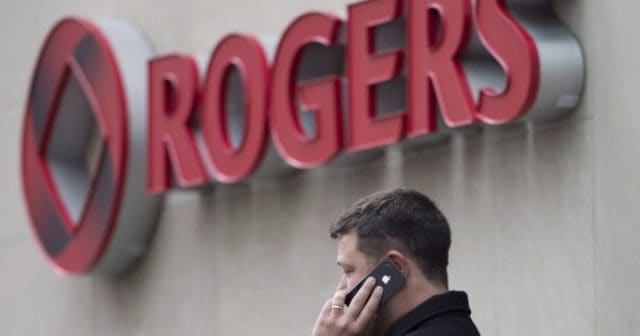 Criminals are supposedly having a field day robbing cell phone stores in Canada after regulators ordered all cell phones to be sold unlocked, allowing customers to bring their devices to other carriers.
Criminals are supposedly having a field day robbing cell phone stores in Canada after regulators ordered all cell phones to be sold unlocked, allowing customers to bring their devices to other carriers.
“There have been multiple instances of armed robberies at our stores targeting unlocked, new devices,” Bell Canada complained in a letter to the Canadian Radio-television and Telecommunications Commission (CRTC). “We believe this trend is attributable to the availability of unlocked devices [that are] more desirable to fraudsters and thieves.”
Because Canada’s three major carrier-cell phone marketplace is seen as less competitive and more expensive than the United States, the CRTC has tried to keep wireless service costs under control by regulating some of the practices of the barely competitive Canadian market. One such initiative is the ban on charging unlock fees on devices, which carriers used to deter customers from changing providers. As of last December, carriers could no longer collect an average of $50 to unlock each device, and new devices had to be sold to customers in an unlocked state, allowing them to be used on any compatible wireless provider’s network.
Rogers, which runs Canada’s largest cable operator and has a major market share of Canada’s wireless market, claims the unintended consequence of the CRTC’s unlock policy is a 100% increase in cell phone thievery during the last six months the policy has been in effect. Rogers reports thieves are stealing brand new cell phones in the mail or off a customer’s front step after the shipper drops the package off. Brazen armed robberies of cell phone stores have been more common in the United States, but providers claim criminal gangs are now taking their business north of the border, holding up stores and running off with dozens of valuable phones.
Both Bell and Rogers warned the CRTC last year thievery would be the likely result of providing unlocked phones. Consumer groups claim both providers have a vested interest complaining about the new unlock policies.  In 2016, Canadian telecom companies made $37.7 million from fees related to unlocking smartphones. That was a 75 percent increase in fee revenue since 2014.
In 2016, Canadian telecom companies made $37.7 million from fees related to unlocking smartphones. That was a 75 percent increase in fee revenue since 2014.
Canadian consumers called unlock charges “ransom fees,” and were particularly upset paying fees after they paid off the device.
“You should be able to unlock it [for free] at the very least once you’ve paid off the device. You own it,” John Lawford, executive director with the Public Interest Advocacy Centre in Ottawa told the CBC.
Lawford calls unlock fees an intended consequence of the industry’s own policies. Cell phone companies sell devices manufacturers have to lock at the behest of carriers, and then consumers face fees paid to the same carriers to undo the lock.
Canada’s providers often point to examples of armed robberies and truck hijacking south of the Canadian border as a reason to be concerned about employee and customer safety. In the view of some, an unlocked smartphone worth more than $500 is an invitation to steal.
Bell told regulators things are certain to get worse in Canada.
 “It appears that illegal activity may have shifted from the U.S. to Canada as some [American] carriers have begun to lock devices,” Bell officials told the CRTC.
“It appears that illegal activity may have shifted from the U.S. to Canada as some [American] carriers have begun to lock devices,” Bell officials told the CRTC.
Bell was referring to Verizon’s unilateral announcement it began relocking smartphones in February, despite its agreement not to as part of an acquisition of 700 MHz spectrum in 2008. That prime spectrum came with strings attached, including a requirement not to disable or restrict devices that use the spectrum, something locked phones do. Verizon previously tested the waters on reintroducing locked cell phones during the second term of the Obama Administration, but the idea met immediate resistance from FCC Chairman Thomas Wheeler.
In 2018, Verizon found a much more receptive audience from the Republican-dominated FCC under Chairman Ajit Pai, and has gradually returned to locking down devices on Verizon’s network. Last spring, Verizon began locking all smartphones sent to stores, to be unlocked after purchase. Verizon argued this would deter armed gangs from hijacking deliveries or raiding stores to steal phones by the dozens, to be resold to the eager black market.
After meeting little resistance, Verizon announced it would start locking phones for an arbitrary amount of time after purchase, defined in terms of “months, not years.”
If thieves obtain a stolen, locked phone, it cannot generally be activated by the customer unless taken to an authorized retailer. This theoretically leaves thieves stuck with worthless phones, which is why Canadian carriers claim the country’s unlocked phone policy will draw American thieves north. But critics suspect financial motives hold more sway. In addition to charging lucrative fees for unlocking phones, customers unable to take their device with them to a new carrier can effectively deter a provider change, especially for family accounts where multiple devices would need to be moved.
Others claim locking phones is not the best way to deter thieves, because an unscrupulous Verizon employee or reseller can still unlock them for thieves.
The wireless industry already claims to have a voluntary, industry-led initiative to dramatically reduce theft — a national database of stolen/lost phones. Under this system, a would-be customer is denied activation if their device’s unique ID appears on a list of stolen or lost phones.
CBC Calgary reports Canadians no longer face unlock fees on their smartphones and other wireless devices. (3:55)


 Subscribe
Subscribe